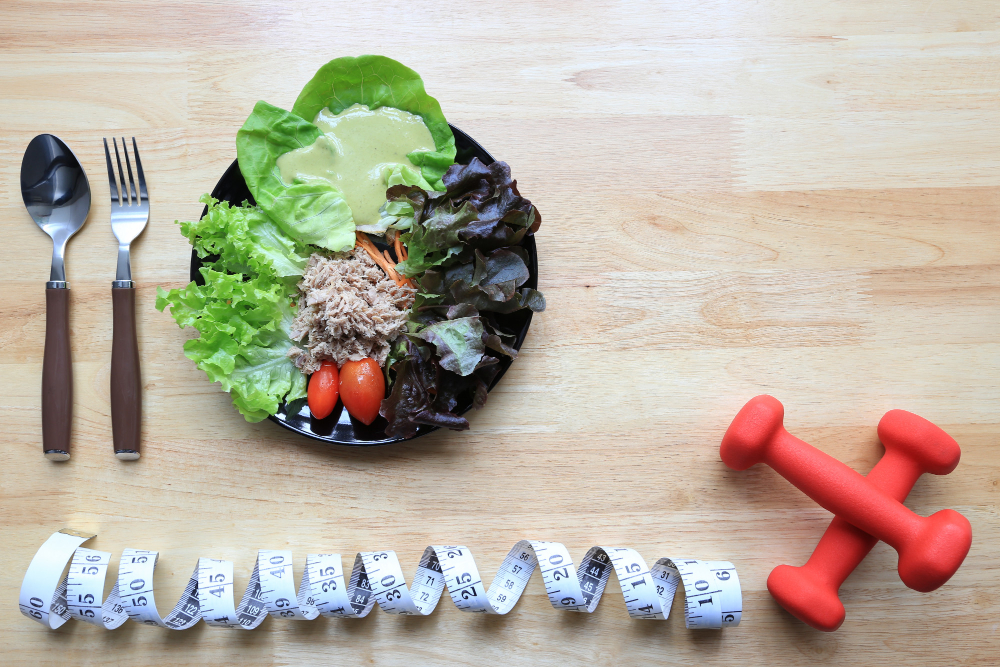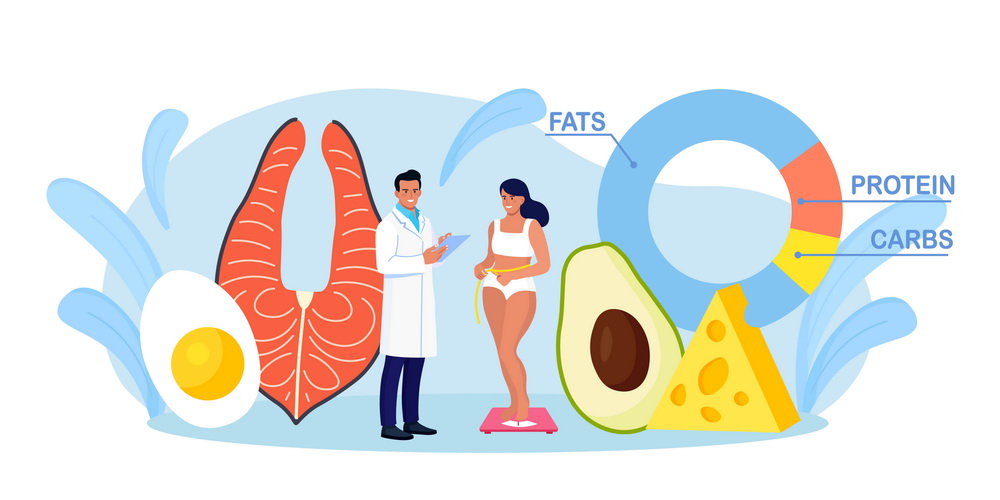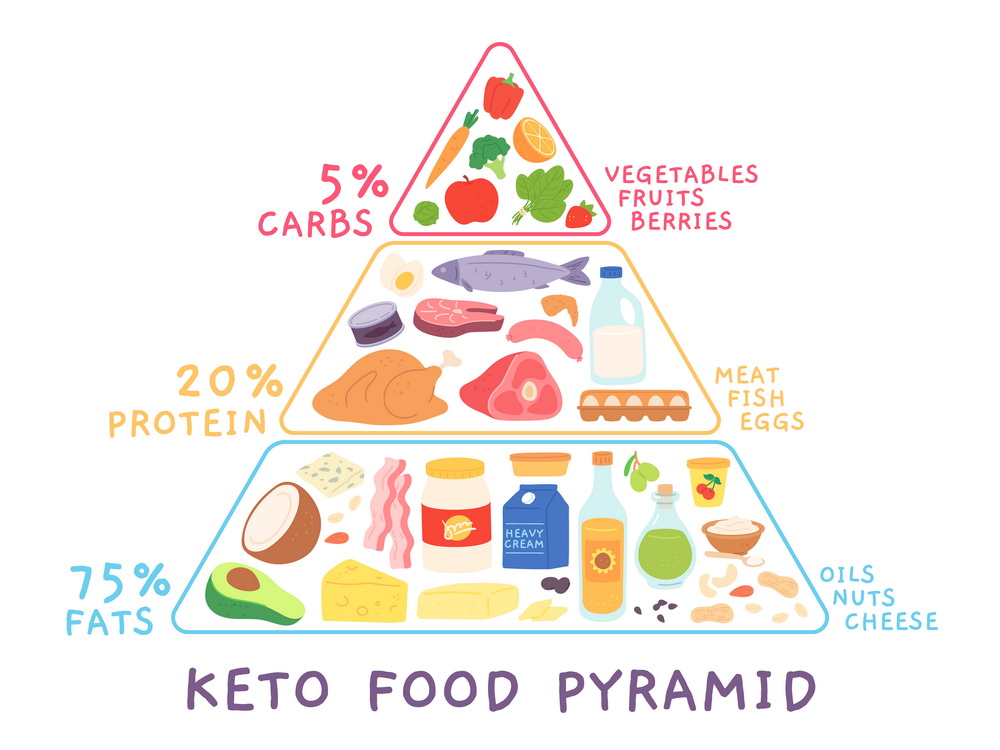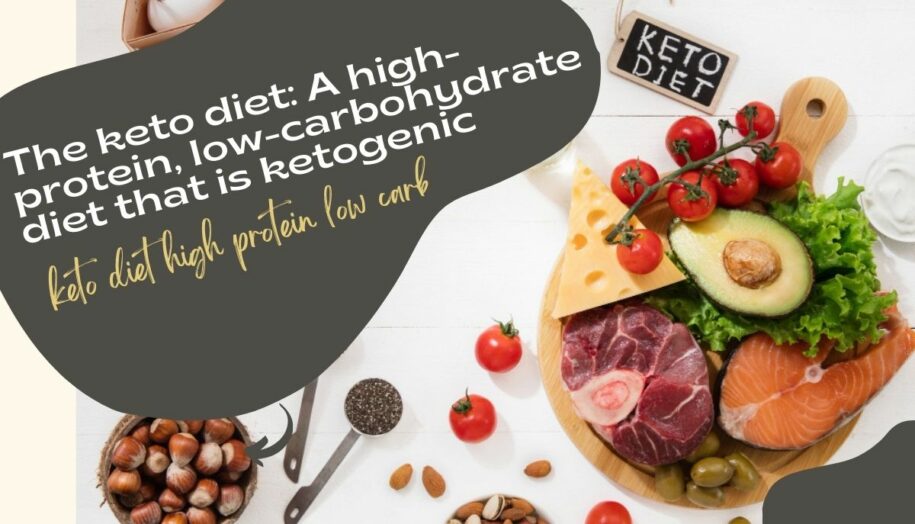The keto diet: A high-protein, low-carbohydrate diet that is ketogenic : keto diet high protein low carb
introduction :Keto diet high protein low carb
The keto diet is a high-protein, low-carbohydrate diet that is ketogenic. This means that it causes ketosis, a state in which the body produces ketones from fat energy stores. The keto diet is often used to treat epilepsy, but it can also be used for weight loss.
The keto diet drastically reduces carbohydrate intake and replaces it with fat. This forces the body to burn fat for energy instead of carbohydrates. This process is known as ketosis.
Ketosis has some potential health benefits, including weight loss, improved mental clarity and decreased inflammation. However, it’s important to note that the keto diet should only be followed under the supervision of a medical professional.
If you’re interested in trying the keto diet, talk to your doctor or a registered dietitian to see if it’s right.

The benefits of the keto diet – how it can help with weight loss, epilepsy, and other conditions.
The keto diet is a high-fat, low-carbohydrate diet that is ketogenic. This means that it causes ketosis, a state in which the body produces ketones from fat energy stores. The keto diet is often used to treat epilepsy, but it can also be used for weight loss.
The keto diet can be a high-protein diet, as well. This means that it can help you lose weight and manage epilepsy and other conditions. The keto diet is also a low-carbohydrate diet, which can help you control your blood sugar levels. In addition, the keto diet can help you reduce the risk of some cancers.

The keto diet risks – what to be aware of before starting this way of eating high-protein, low-carbohydrate.
The keto diet is a high-fat, low-carbohydrate diet that is ketogenic. This means that it causes ketosis, a state in which the body produces ketones from fat energy stores. The keto diet is often used to treat epilepsy, but it can also be used for weight loss.
However, there are some risks associated with the keto diet that people should know before starting this way of eating.
First, the keto diet can cause ketoacidosis, a potentially life-threatening condition that occurs when ketones build up in the blood to dangerous levels. Ketoacidosis is more likely to occur in people with type 1 diabetes or type 2 diabetes, and it can also be triggered by alcohol consumption, illness, or fasting.
Second, the keto diet can lead to gastrointestinal issues like constipation and diarrhoea. These problems are typically due to the lack of fibre in the diet and increased fat intake.
Third, the keto diet can cause dehydration and electrolyte imbalances. The body loses water and electrolytes (sodium, potassium, and magnesium) through ketosis.
Fourth, the keto diet can impact blood sugar levels. This is a concern for people with diabetes and those who are prediabetic or have insulin resistance.
Finally, the keto diet may not be sustainable long-term. This is because it is a very restrictive diet that can be difficult to stick to.
Overall, the keto diet can be safe and effective for some people, but it is important to be aware of the risks before starting this way of eating. Talk to your doctor or a registered dietitian to see if the keto diet is right.
This article is based on scientific evidence, written by experts and fact-checked by our trained editorial staff. Our team of licensed nutritionists and dietitians strive to be objective, unbiased, and honest. We are committed to bringing you clear, concise information on all the keto products we review. If you know of a keto product that we should review, please let us know!
Are there any risks or side effects of following a keto diet high in protein and low in carbs?
Some potential risks and side effects are associated with following a keto diet, especially if you are not used to eating a high-fat, low-carbohydrate diet(keto diet high protein low carb). These include fatigue, dizziness, headaches, constipation, and bad breath. In addition, ketosis can be dangerous for people with diabetes or other conditions that affect blood sugar levels. If you have any concerns about following a keto diet, please speak to a registered dietitian.

Tips for success on the Keto diet high protein low carb – what to do (and not to do) to make sure you stick with it and see results.
1. Do your research. Before starting any new diet, it’s important to do your research and ensure it’s the right fit for you. The keto diet is a high-fat, low-carbohydrate diet that is ketogenic. This means that it causes ketosis, a state in which the body produces ketones from fat energy stores. The keto diet is often used to treat epilepsy, but it can also be used for weight loss.
2. Talk to your doctor. As with any new diet, it’s always good to talk to your doctor before starting, especially if you have any medical conditions or concerns. They can help you make sure the keto diet is safe for you and offer guidance on how to start.
3. Get organized. When starting any new diet, it’s helpful to have a plan and some structure. This will help you stay on track and ensure you’re getting the nutrients your body needs. Make a list of keto-friendly foods, and stock your kitchen accordingly. Meal-prepping or batch cooking can also be helpful.
4. Stay hydrated. It’s important to stay hydrated on the keto diet, as ketosis can cause dehydration. Make sure to drink plenty of water and electrolytes (such as sodium) throughout the day.
5. Be prepared for keto flu. When first starting the keto diet, some people may experience what’s known as keto flu. This is a temporary condition caused by the body adjusting to ketosis. Symptoms may include fatigue, headache, nausea, and difficulty sleeping. These should resolve within a week or so.
6. Avoid temptations. When trying to stick to a new diet, it’s important to avoid temptations. This means steering clear of keto-unfriendly foods and situations (such as social gatherings where there will be tempting foods). If you indulge, make sure to get right back on track the next day.
7. Seek support. Dieting can be tough, and it’s helpful to have a support system in place. This could mean joining a keto-focused online community or working with a Registered Dietitian specializing in ketogenic diets.
8. Check in with yourself. It’s important to check in with yourself regularly when starting any new diet. This means asking yourself how you’re feeling, both physically and mentally. If you’re struggling, don’t hesitate to reach out for help.
The keto diet can be a great way to jumpstart your weight loss journey or help manage certain medical conditions. By following these tips, you can set yourself up for success.

conclusion:keto diet high protein low carb
The keto diet is a high-fat, low-carbohydrate diet that can be ketogenic. This means that it causes ketosis, a state in which the body produces ketones from stored fat for energy. The keto diet is often used to treat epilepsy, but it can also be effective for weight loss and other purposes.
There are some potential risks to be aware of before starting the keto diet, such as the possibility of nutrient deficiencies and increased blood cholesterol levels. However, ketosis can also have some benefits, such as improved mental clarity and decreased hunger. Overall, the keto diet is a safe and effective way of eating for many people. However, it is important to speak with a doctor before starting any new diet.


